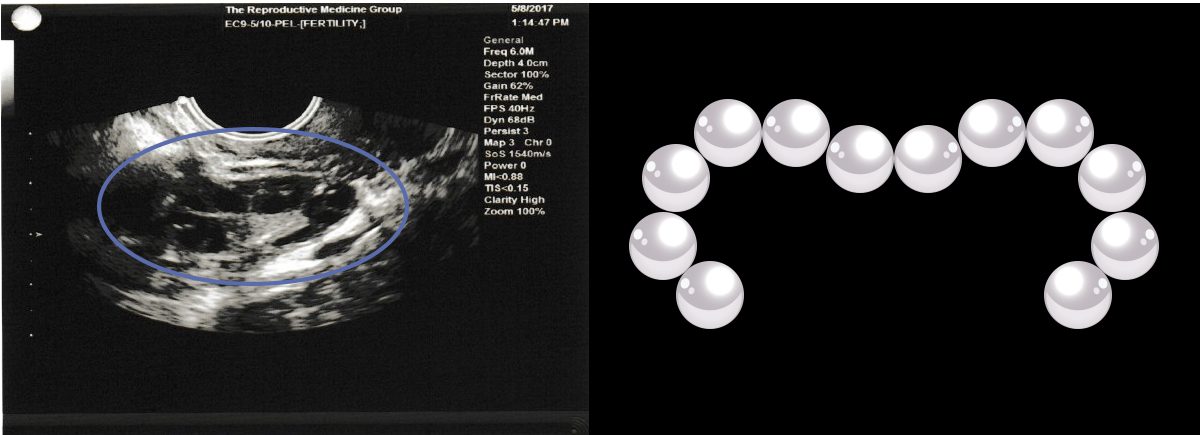Female Reproductive Anatomy
Understanding female reproductive anatomy and the various factors that can contribute to infertility is essential for anyone who wishes to become pregnant or who may be struggling to conceive.
A female’s reproductive organs consist of the vagina, cervix, uterus, fallopian tubes, and ovaries. The vagina is the tube that connects the external opening to the cervix, which is the tissue that serves as the entry into the uterus. Both the vagina and the uterus have muscular walls, but the uterus has a thick lining. This lining will allow an embryo to implant and a baby to grow. Each month, blood and tissue build inside the uterus. If a woman’s egg is not fertilized, she will not become pregnant and will shed the lining during her monthly period.
On either side of the uterus, two fallopian tubes extend from the uterus toward each ovary. The ovaries store, mature, and release eggs into the fallopian tubes during ovulation. The fallopian tubes are the location where sperm and egg meet and fertilize. The tubes are narrow at the top near their connection to the uterus and wider toward the ends near the ovaries. The end of the tube is called the fimbriae, delicate structures that are responsible for picking up the egg from the ovary. Infertility can occur if the fimbriae are damaged from:
- An infection, such as gonorrhea or chlamydia
- Scar tissue within or around the tubes due to prior surgery
- Endometriosis
- Tubal pregnancy
One major part of female fertility is the egg, also known as an oocyte, ovum, or gamete. A female is born with a pre-determined number of eggs – usually around one to two million in total. Every month during menstruation, several eggs are triggered for release, but only one reaches maturity. The mature egg is released into the fallopian tubes, while the other eggs are simply reabsorbed into the body. By the time a woman is in her early to mid-50s, a few hundred eggs or fewer remain in her ovaries.
Ovaries also produce the female hormones estrogen and progesterone. Not only do these hormones control the menstrual cycle, but they also play a large role in getting pregnant and sustaining a pregnancy. If hormone levels are too high or low, it can result in miscarriage.
Female Infertility – Factors & Diagnosis
Female infertility causes include:
- Inadequate egg quality or quantity (low ovarian reserve)
- Problems with hormones levels affecting ovulation
- Pelvic scarring or inflammation
- Endometriosis
- Fallopian tube damage or blockage
- Uterine polyps and fibroids
Another fertility issue that women can face is recurrent pregnancy loss, which is when a woman has had two or more miscarriages.
Some diagnoses related to female infertility factor include:
Ovulation Disorders
Any disruption in the monthly process of ovulation can result in female infertility. Often, women with ovulation problems will experience irregularities in their menstrual cycles. Testing can be done to determine if a woman is ovulating. Testing for PCOS, thyroid, and/or prolactin disorders can be done. Reproductive endocrinologists specialize in diagnosing and treating PCOS as well as other hormone disorders that affect fertility.
Polycystic Ovary Syndrome (PCOS)

PCOS is a common cause of not ovulating regularly, irregular periods, and female factor infertility. Women who have PCOS experiencing infertility do not mature and release an egg each month. Their ovaries also have many small cysts, which can be as big as a marble or as small as a coarse grain of salt. Treatment for PCOS with infertility may include medications to stimulate the ovaries.
Learn more about PCOS.
Endometriosis
Endometriosis is a condition in which cells that are similar to the lining of the uterus (i.e., the endometrial lining) grow outside of the uterus. Endometriosis can cause pain, scar tissue growth, pelvic adhesions, and infertility issues. If the fallopian tubes are blocked or full of scar tissue, this can prevent the egg from traveling through the fallopian tubes down into the uterus. In some cases, this can lead to an ectopic or “tubal pregnancy,” where the embryo implants outside the uterus and in the fallopian tube.
Treatments for endometriosis may include:
- Laparoscopy (surgical removal of endometriosis)
- Hormonal treatments that inhibit the growth of endometriosis
- In-vitro fertilization (IVF)
Learn more about endometriosis.
Premature Ovarian Failure (POF)
Sometimes, women under the age of 40 will experience a sudden drop in ovarian function. This is referred to as premature ovarian failure or premature ovarian insufficiency. Sometimes, the cause is unknown, but other times it may relate to autoimmune, genetic, or environmental factors such as exposure to chemotherapy. Treatments for POF may include using an egg from a donor who is young and has a large number of healthy eggs.
Uterine Fibroids and Polyps
Uterine fibroids are benign muscle tumors within the uterus. Fibroids begin within the muscle wall of the uterus but can grow into the uterine cavity as well. A uterine polyp is an overgrowth of tissue, like a skin tag within the uterus. Both may potentially interfere with the implantation of an embryo into the uterus lining. Treatment for fibroids or polyps often includes surgical removal.




